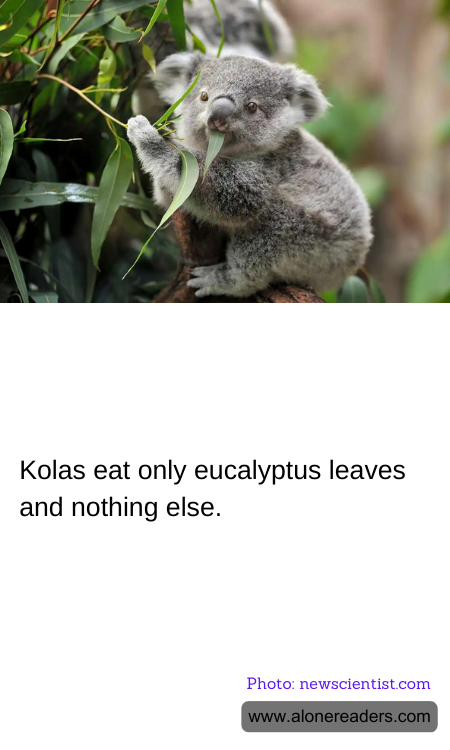
Koalas, often mistakenly called koala bears, are actually marsupials unique to Australia. One of the most fascinating aspects of these creatures is their highly specialized diet. They eat exclusively eucalyptus leaves and nothing else, which is unusual since eucalyptus leaves are tough, toxic, and have low nutritional value. However, koalas have adapted remarkably well to this limited diet.
Eucalyptus leaves contain compounds that are poisonous to most animals, but koalas have a specially adapted digestive system. Their large caecum, a unique kind of gut, helps in detoxifying the chemicals found in the leaves. This part of their digestive tract hosts bacteria that break down the fibrous material, enabling the koala to absorb the necessary nutrients effectively.
Koalas are also very selective about the species of eucalyptus they consume. Out of over 600 species of eucalyptus, koalas eat leaves from only about 30 to 50 varieties. Their choices are influenced by the protein content and the level of toxic chemicals present in the leaves of different species. This fussy eating is coupled with a keen sense of smell, allowing them to choose leaves that have the highest nutritional value and the lowest amount of toxins at any given time.
The low nutritional content of eucalyptus leaves means koalas must conserve energy, which they do by sleeping up to 20 hours a day. They spend most of their waking hours eating; a fully grown koala consumes about a kilogram of leaves each day. This diet is not only crucial for their survival but also impacts their behavior and social structure. The need to conserve energy contributes to their sedentary and solitary lifestyle.
Due to their specialized diet, koalas are extremely vulnerable to habitat destruction. Clearing of eucalyptus forests for agriculture, urban development, and other activities directly threatens their food source and survival. Conservation efforts are crucial to ensure that koalas not only survive but thrive. Protecting their natural habitats and restoring eucalyptus forests can help maintain the natural balance and ensure that these iconic Australian marsupials continue to be a part of the ecosystem.
In conclusion, koalas' reliance on eucalyptus leaves is a remarkable example of an animal adapting to a specific ecological niche. While this diet allows them to survive in their native habitat, it also makes them extremely vulnerable to environmental changes. Preserving their habitat is not just crucial for the survival of the koalas but also for the biodiversity of the regions they inhabit.